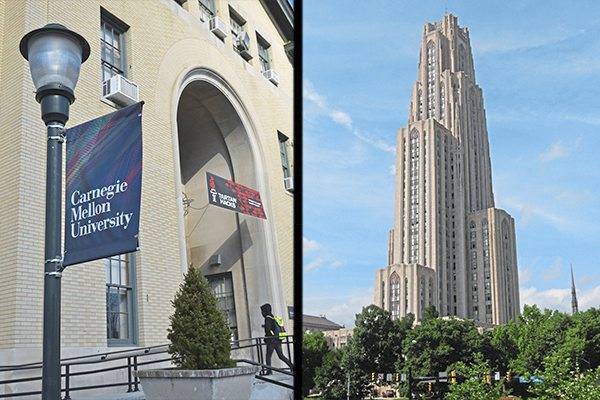Both the University of Pittsburgh and Carnegie Mellon University are set to lose roughly $100 million in federal medical research fundinbv g due to budget cuts by President Trump and the Department of Government Efficiency.
This is part of a wave of budget cuts to the National Institute of Health, which funds research projects at many institutions of higher learning nationwide.
In addition to the money directly needed for the research, the NIH also awards money for “indirect costs”, averaging roughly 28 cents for every dollar given.
In 2024, the NIH reported spending $35 billion in 2024 on direct costs and an additional $9 billion on indirect costs.
The budget cuts are proposed to cap the total amount of money given in indirect costs to every institution to 15 cents for every dollar. Despite bipartisan skepticism, the Trump administration claims that these measures will save the American taxpayer roughly $4 billion annually.
Both Pitt and CMU receive more than the average, with Pitt and CMU earning 59 cents and 54 cents per dollar respectively, according to WESA.
Pitt receives roughly $700 million per year, ranking sixth nationwide in terms of NIH funding. Most of this money goes towards equipment and lab space, both of which have led to Pittsburgh being a hot spot for medical research and education.
The money has been used for research on cancer, dementia, and heart disease, according to CBS. With this cut in funding, research at the university could have major financial restraints, jeopardizing the depth of- and ability to research these diseases moving forward.
“We’re trying to make ends meet by being creative but that’s only going to allow us to survive just a couple of months,” Pitt professor TK Kozai told KDKA’s Andy Sheehan.
Carnegie Mellon receives a much smaller amount than Pitt, receiving roughly $38 million in 2024, according to WESA. CMU filed a joint injunction in federal court, and a judge has frozen the cuts as of right now. It is the federal government’s decision whether or not to resume funding before the cuts are discussed in court.
Arguments will be heard on Feb 21st.






















